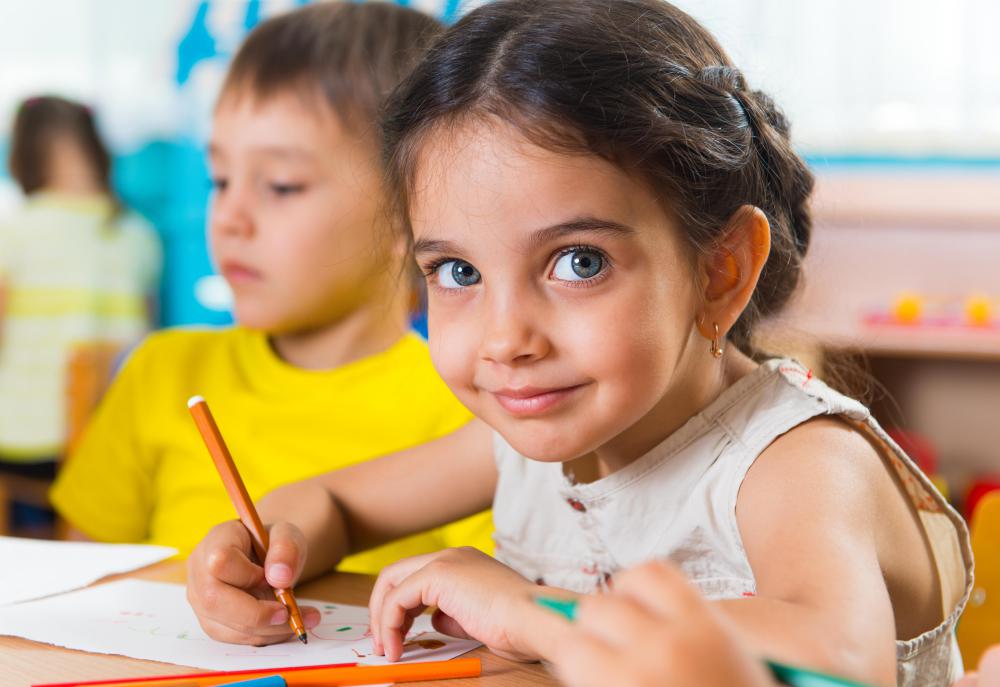At TheHealthBoard, we're committed to delivering accurate, trustworthy information. Our expert-authored content is rigorously fact-checked and sourced from credible authorities. Discover how we uphold the highest standards in providing you with reliable knowledge.
What Factors Affect Emotional Development in Childhood?
Several factors can affect emotional development in childhood, including family support, education and play, family income level, and genetic abnormalities or other illnesses. Family interaction seems to be the most important influence in a child’s emotional development. Studies have shown that the first five years of a child’s development are crucial to a healthy emotional life.
The most significant factor influencing emotional development in childhood seems to be family nurturing. Parental involvement is vital. Infants as young as three months old can imitate the facial expressions of their parents and siblings. Toddlers like being around other children, although until two years old they will play in parallel and not directly with other children.

Attachment to an adult, especially a mother figure, is key to social and emotional development in childhood. Consistent, nurturing parental behavior is necessary for an infant’s emotional health. It is important that parents understand their infant’s needs. Crying is the principal way that infants communicate, and smiling is a sign of pleasure or wanting more of something.

Exposure to systemized education early in life can also impact a child’s emotional well-being. Research shows that children with access to early childhood education often have better opportunities to interact with other children and develop social skills. Both fine and gross motor skills can be improved by organized play and creative projects. More importantly, mastering these skills can enhance a child’s self-esteem.

Studies have found a connection between family income levels and child development. Lower income families tend to have more children with emotional problems. Parents often work long hours to provide food and shelter, so they may be emotionally drained and not have the time to bond with their children. Children from lower income families may also not have access to early childhood education.

Genetic abnormalities and disease can impact emotional development in childhood. Children with Down syndrome or other diseases that affect cognitive function may have a more difficult time relating socially. Other diseases can create problems as well. For example, a high fever that causes hearing loss or impairment can impact a child’s ability to relate to family and peers, and to be successful in school.

What happens during the first five years in a child’s life has a profound impact on his or her emotional health. Parental support and nurturing is key, especially in the first few years. From three to five years old, children begin to interact with other children and develop social skills. They learn how to make friends and how to solve disagreements with other children.
AS FEATURED ON:
AS FEATURED ON:

















Discussion Comments
I find the connection between income level and child development interesting. When income levels are low, children may be malnourished or may not be cared for as well and this will definitely affect their emotional development negatively. But I don't understand how else income affects emotional development.
Families with very high income may also be working a lot and may not spend much time with their children. Or they may hire nannies to care for their children and not bond with them as much either.
So I don't think that it's very accurate to say that children of low income families have poor emotional development.
We cannot over-emphasize the importance of parents in the emotional development of a child. Until a certain age, most children do not interact with many people aside from their parents and siblings. If parents are experiencing problems themselves and if they are not able to give the affection and attention that a young child needs, the child will probably have issues when she or he is older.
This is one of the reasons that psychologists recommend parents to get divorced rather than staying together and constantly fighting. A child's immediate environment must be safe, comforting, loving and supportive. Parents who are at one another's throat at all times cannot provide such an environment.
My brother and I did not grow up in a nurturing environment. Fights, anger and verbal abusing was common in our household. Needless to say, both my brother and I have emotional issues today. My brother has anger issues and I suffer from anxiety. So I beg parents, please don't do this to your children. Even if they are very young, they will be affected immensely.
Post your comments